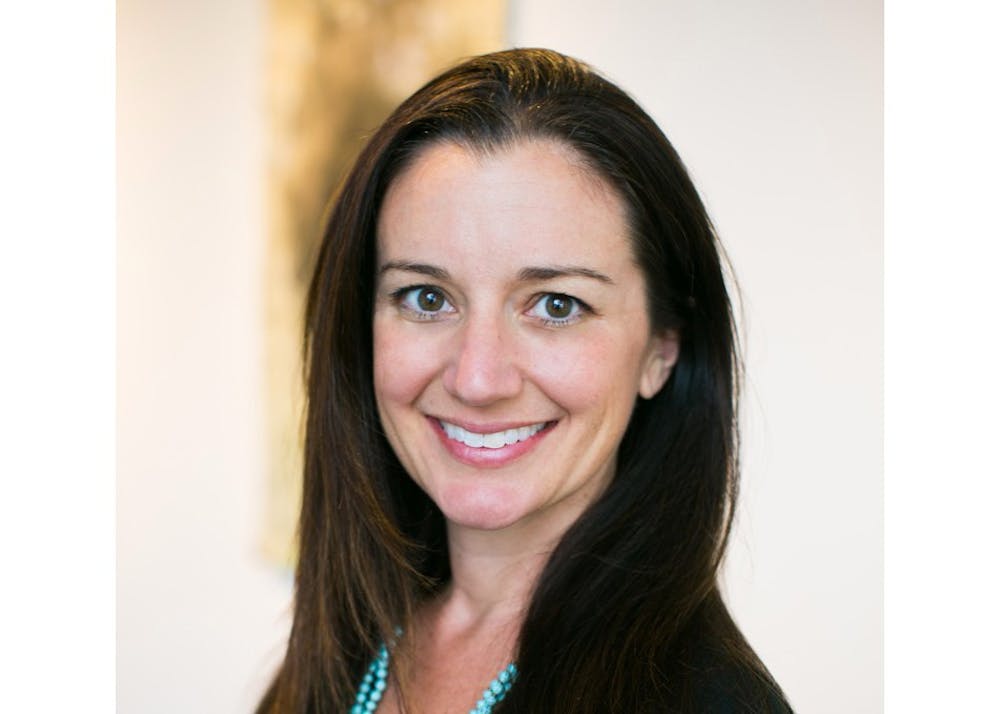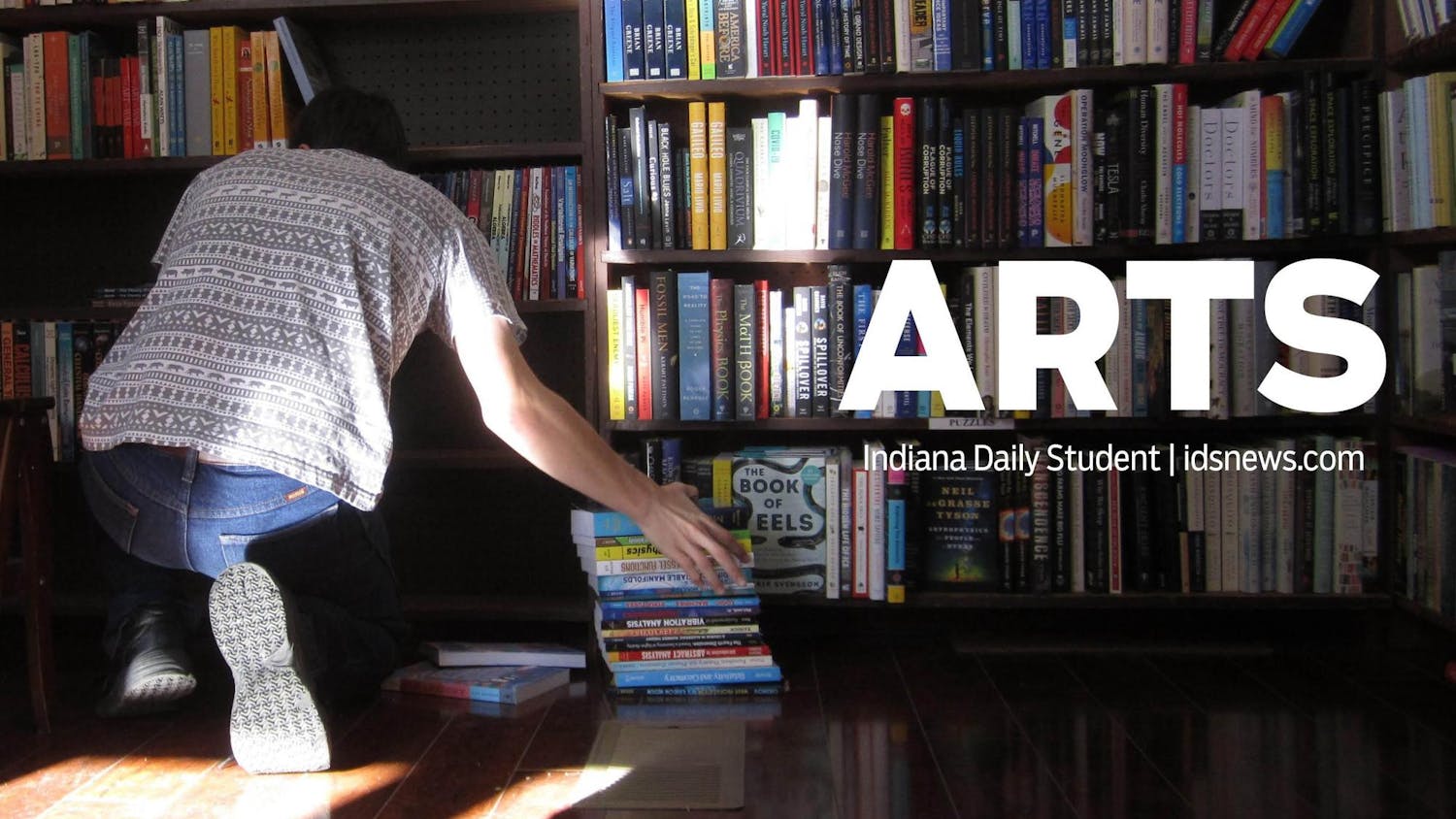Dr. Debby Herbenick is a sex educator and researcher. She is currently the Director for the Center for Sexual Health Promotion, author of the Kinsey Confidential column and a professor who teaches human sexuality at IU.
She hosts the Bloomington Sex Salon and was as a co-producer for the Netflix documentary, "Hot Girls Wanted."
Her research focuses on creating a better understanding of how contemporary women and men experience their sexual lives. Herbenick spoke to the IDS about her research, the Kinsey Confidential column and sexuality in the United States.
Indiana Daily Student: Could you talk about your background and how you got into sex research?
Herbenick: I did my undergrad at the University of Maryland and I studied psychology and child development, and when I graduated college, the Kinsey Institute was doing research on child and adolescent sexual development.
So, even though I hadn’t studied sex before, it was interesting to me because of the child and adolescent piece, and I started working there and realized how little I knew, at the time, about sexuality, how little most of my friends knew about sexuality, and I wanted to stay and keep learning more.
So I stayed at IU, and I went back to grad school and I learned about public health and sexual behavior and sexual health, and became a sexual educator and researcher.
IDS: Do you have a favorite study you've worked on?
Herbenick: We’ve done a lot. My team has published more than 100 scientific studies on sexuality. I think some of my favorites are — one was about exercise-induced orgasm. So this experience that some people have, about 10 percent of men and women have, of having orgasms while they do certain kinds of exercises that are really difficult for their core abdominal muscles.
So, lots of crunches or pull ups and crunches, or pull ups and chin ups, things like that, but also running, if you do it for long enough. And so, we were the first people to publish a study on that. It was interesting to me because it was just so unknown, and so there was a lot that we could be curious about and investigate.
And then I’ve done a lot of research on how men and women feel about their genitals, so genital self-image and through some of that work, a friend and colleague and I wrote a book about vulvas and vaginas called “Read my Lips.”
It was all about vulvar and vaginal health and sexual pleasure, as well as vulvar crafting ideas in every chapter. So those have been really fun, but probably what we’re most known for are these very large-scale studies of sexual behavior in the United States.
IDS: You were a co-producer for the Netflix documentary "Hot Girls Wanted," what was that experience like?
Herbenick: So what my colleague and I in the media school did as co-producers was really provide research to the film, so we weren’t involved in the filmmaking, but that was our role. So we provided research information to the directors and the producers, and it was just fascinating to understand more about how documentary films are made, to get to talk with filmmakers about their process. And we’ve still worked with them.
They had a follow-up Netflix series called “Hot Girls Wanted: Turned On,” which is a series of episodes about the intersections of sex and technology and we also provided, we actually did a whole new study just for that series that looked at issues of sex and technology or news and sexually explicit media.
IDS: Why is it important to publish information about sex, like the Kinsey Confidential column?
Herbenick: I think it’s really important that student newspapers, in general, publish fact-based information about sex. Like I said, when I graduated from college and first came to Kinsey as a research assistant at the time, it was eye-opening how much of what I thought I knew was wrong.
I teach human sexuality here at IU, and I find that most of my students have never had much sex education in school. If they have, it’s just been limited to a few days, and that’s typical for Americans everywhere. There’s not a lot of sex ed. So I think that’s why it’s important.
You know, we only answer one or two questions every column, so it’s not an enormous amount, but it’s consistent and it’s regular, and more than that, I think it normalizes sex too.
It’s a completely normal topic that you could find in your newspaper, no different than reading about sports or reading about current events, and it signals to students that there are resources for them here on campus, whether it’s the health center, or the School of Public Health, human sexuality classes or a range of other sex classes throughout the departments on campus where they can learn about sexuality.
IDS: Could you talk a little bit about the Bloomington Sex Salon?
Herbenick: They’ll start back up in December. I took a few months off with having a baby. I love the Bloomington Sex Salon.
So yeah, I started this a few years ago, after realizing what amazing conversations I had with my friends who were fellow researchers and educators, and just because I know a lot about sex and I study what I study, doesn’t mean that I know everything about sex.
So I have friends and colleagues who study things that I don’t know, and when I get together with them over lunch or coffee, I ask them about their work and they tell me things that I learn about and that are interesting.
And so it occurred to me that, wouldn’t it be cool if we basically did this in a public setting, and other people could benefit from that. So, the style of the Bloomington Sex Salon is that it’s held in public, off-campus spaces, usually a bar, and almost always the Bishop. We’ve tried a few other ones, but the Bishop works the best for us. And so, it’s 18 plus, and you don’t have to drink, but there are drinks available for people who want to buy beer, wine or alcohol, or water.
And they can hang out, and watch two people talk about sex. And so the first 30-40 minutes is just me asking questions of whoever the guest is that month, and then the next 20-30 minutes is audience Q&A. It’s very casual – we invite people who are comfortable talking about sex in real ways, not sort of ivory tower academic theory ways, not that that’s not interesting, but that’s not what this is.
This is about bridging conversations with the community. We’ve had great, great people. We’ve had a lot of IU faculty, we’ve had professors from other schools, like Emory University, come in. We’ve had Dr. Ruth, who is a very famous sex educator, who is in her 80s now.
We’ve had Annie Sprinkle, who is a performance artist and former porn actress and former sex worker. We’ve had the filmmakers from "Hot Girls Wanted" and New York Times best-selling authors, and just a really interesting range of people. Photographers, sex educators, so it’s fun and it’s free, and they start back up in December.
IDS: Do you think there's a stigma surrounding sex in the United States?
Herbenick: Yes, overwhelming yes. And it’s hard, right? Because in some ways, people talk about sex frequently. There’s been a lot about sex in the newspaper because of the Harvey Weinstein stuff. So people write, like in the newspapers and blogs, and talk pretty frequently about harmful sex, predatory sex, illegal sex.
There’s been no shortage in the conversation about sexual assault, but what I think every student and every person who cares about these issues should ask themselves is: are we getting a balance about healthy sexuality?
For every article about sexual assault – which is important, every Harvey Weinstein article has been important to document that these things really happen, and they happen more often than we talk about – but how much are we getting about sexual pleasure, sexual communication, sexual education in schools, helpful information for parents to talk to their kids about sex, helpful information for older people to figure out sex as they have health problems or lose a partner to death or having to go into an assisted living center.
There’s all these parts of like the normal, healthy spectrum of sexuality that we’re not talking openly about. But we talk about predatory sex, illegal sex, and we talk about sensational sex. We see no shortage of sexual imagery among the Kardashians.
You can turn on the TV or you’re looking through YouTube, and you can see all kinds of titillating sex – and that’s fine, that has a place, the scary warning stories have a place – but where we struggle as a society is everything kind of in between.






